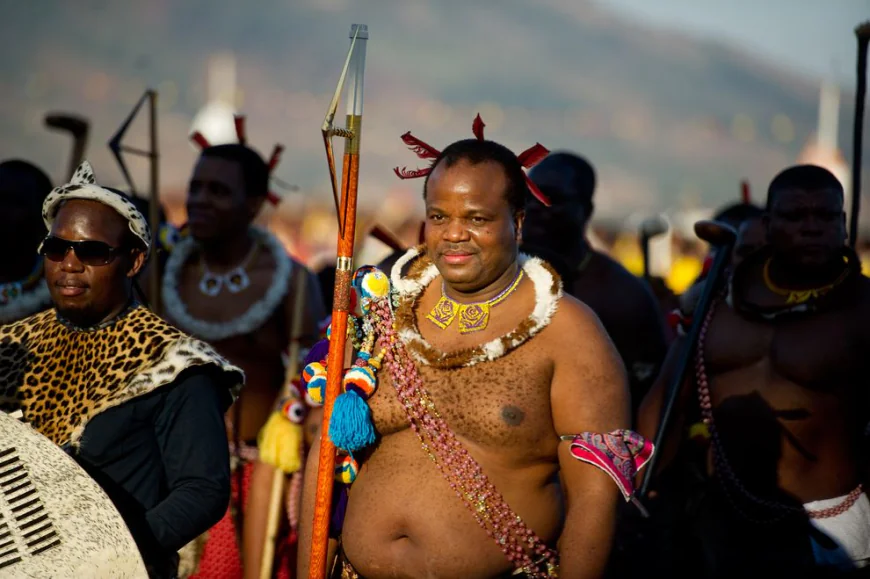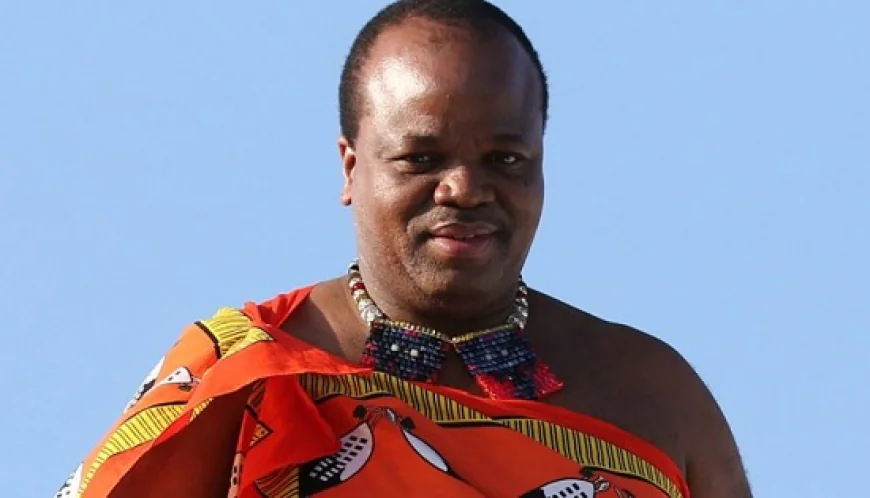King Mswati III: Inside the Reign of Africa’s Last Absolute Monarch
His status as king gives him sweeping powers: powers of the veto over branches of government, immunity from prosecution, and the privilege of appointing senior officials like the prime minister, senators, and local chiefs.

King Mswati III, born on April 19, 1968, as Makhosetive Dlamini, ascended the throne of Swaziland—now officially known as Eswatini—on April 25, 1986, shortly after his eighteenth birthday.
His status as king gives him sweeping powers: powers of the veto over branches of government, immunity from prosecution, and the privilege of appointing senior officials like the prime minister, senators, and local chiefs.
Absolute Power + Dual Monarchy System
Eswatini remains Africa's only absolute monarchy; King Mswati co-rules with his mother, the Queen Mother, or Indlovukati, in a unique dual system. Parliament exists but is largely advisory—true power lies firmly with the monarch.
Champion of Culture and Infrastructure
Mswati III resides as custodian of Swazi tradition. He sits personally at events like the once-yearly Umhlanga (Reed Dance), bestows cultural honors, and promotes traditional attire and tradition. He also advocates investment in infrastructure—most recently hosting a flagship highway's opening in April 2024—and campaigns on youth empowerment and pragmatic education reform.
Also See: Kalsoume Sinare Biography: Ghana’s Screen Legend Turned Diplomat
Lavish Lifestyle vs. Widespread Poverty
Even as a public advocate for culture development and preservation, King Mswati III has been criticized for a life of extravagance that strongly contrasts with the lives of most citizens. He has private homes, a personal airplane and Airbus A340, a collection of luxury vehicles, and at least 15 wives and more than 45 children. Meanwhile, more than half of Eswatini’s 1.2 million people live on under $3.65 per day, with national life expectancy and health metrics among the lowest globally.
Political Control and Human Rights Concerns
Since the political party ban in 1973, political space in Eswatini remains closely restricted. Protests calling for democratic reforms in 2021 were brutally suppressed, leading to human rights violations including arrests, protesters murdered, and allegations of political poisoning and activist killings. Freedom of the press is closely controlled under his rule, and sedition law is utilized to suppress dissidence.
Diplomatic and Regional Engagements
King Mswati III is also in a diplomatic role across Africa. He has visited other African kingdoms, such as Busoga in Uganda, attended African Union summits in traditional dress representing the nation, and forged ties via economic and cultural diplomacy. In 2018, he renamed the country "Kingdom of Eswatini" in an attempt to restore its pre-colonial status.
The king is on a four-day state visit right now to improve Ghana and Eswatini's diplomatic and economic ties. Also, to strengthen ties between the Asante Kingdom and Eswatini in terms of history and culture.

This is King Mswati III's first trip to Ghana, and it is also the first time President Mahama has hosted him since he became president again on January 7, 2025.
King Mswati III is an intriguing, if problematic, figure: an absolute monarch passionately committed to cultural heritage and national identity, but ruling in a poverty-stricken nation with democratic pressures in a land of absolute government and lavish entitlement. His reign is a lesson in the intertwined dynamics between tradition and modern governance in 21st-century Africa.


